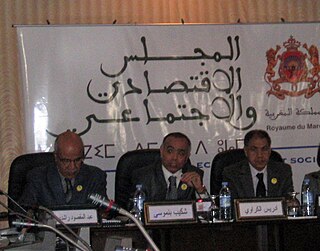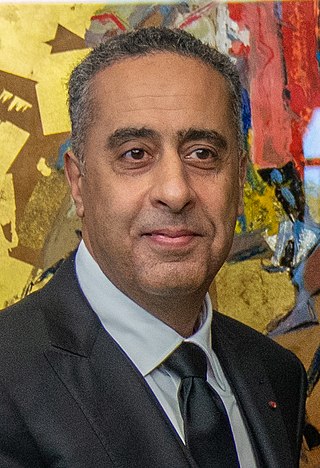Related Research Articles
Universal jurisdiction is a legal principle that allows states or international organizations to claim criminal jurisdiction over an accused person regardless of where the alleged crime was committed, and regardless of the accused's nationality, country of residence, or any other relation to the prosecuting entity. Crimes prosecuted under universal jurisdiction are considered crimes against all, too serious to tolerate jurisdictional arbitrage.
Life imprisonment is any sentence of imprisonment for a crime under which convicted people are to remain in prison for the rest of their natural lives or indefinitely until pardoned, paroled, or otherwise commuted to a fixed term. Crimes for which, in some countries, a person could receive this sentence include murder, torture, terrorism, child abuse resulting in death, rape, espionage, treason, drug trafficking, drug possession, human trafficking, severe fraud and financial crimes, aggravated criminal damage, arson, kidnapping, burglary, and robbery, piracy, aircraft hijacking, and genocide, crimes against humanity, war crimes or any three felonies in case of three-strikes law. Life imprisonment can also be imposed, in certain countries, for traffic offences causing death. Life imprisonment is not used in all countries; Portugal was the first country to abolish life imprisonment, in 1884.

The Government of Morocco sees Western Sahara as its Southern Provinces. The Moroccan government considers the Polisario Front as a separatist movement given the alleged Moroccan origins of some of its leaders.
Morocco became a highly repressive country under the absolute monarchy of King Hassan II, and continues to be considered repressive under the reign of King Mohammed VI, though the latter has instituted some reforms. Dozens of journalists, artists, and ordinary citizens are regularly sentenced to lengthy prison sentences for exercising basic rights enjoyed elsewhere in the world, such as freedom of the press, protesting the government, or criticizing government officials. Morocco heavily restricts basic human rights, such as freedom of speech, the right to assembly, and the right to criticize officials. Moroccans also feel the pressures of inflation within the country, such as the lack of basic services like healthcare, clean water, and the difficulty of parents to access a quality education for their children. While there have been a handful of reforms that have been generally welcomed internationally, most Moroccans feel this is insufficient, and continue to be unhappy with the trajectory of the country under the policies of King Mohammed VI, despite his transition of the government to an ostensible constitutional monarchy. Under his father, King Hassan II, Morocco had one of the worst human rights records in Africa and the world, especially during the time period known as the "Years Of Lead", which lasted from the early 1960s until the late 1980s; it was a period in the country's history that was known for the brutal repression of political dissent and opposition, that involved wide-scale arrests, arbitrary detention, lengthy imprisonment, and even killings of political opponents. Currently, Morocco continues to face some of these issues, as well as other human rights problems, such as poor prison conditions, the mistreatment of women and the LGBT community, and the widespread use of torture by police. Despite the considerable improvements made in the last several years under the leadership of King Mohammed VI, who has rolled back some of his father's harshest decrees, repression of political dissidence, and torture of citizens by officials, is still commonplace in Morocco today.

Chakib Benmoussa is a Moroccan diplomat and politician. He previously served as the interior minister of Morocco and has been the lead negotiator for the Moroccan side in the Western Sahara conflict. Since December 2012, he is serving as the Moroccan ambassador to France. On October 7,2021 he was appointed as the education and sports minister.
Since the end of the 1980s, several members of POLISARIO have decided to discontinue their military or political activities for the Polisario Front. Most of them returned from the Sahrawi refugee camps in Algeria to Morocco, among them a few founder members and senior officials. Some of them are now actively promoting Moroccan sovereignty over Western Sahara, which Morocco considers its Southern Provinces. Their individual reasons to stop working for POLISARIO, as reported in the media, vary, but include allegations of human rights violations, monopolization and abuse of power, blackmailing and sequestering the refugee population in Tindouf, and squandering foreign aid. They also claim POLISARIO is controlled by the government of Algeria and as one former member of POLISARIO put it, "[was] a group of Moroccan students who were urging the Spanish colonizer to leave and who had never claimed independence or the separation from motherland Morocco."
A Jund al-Haqq organization claimed in 1988 and 1989 from Beirut a kidnapping in Lebanon, three assassinations in Brussels, a murder in Bangkok and an attempted murder in Karachi. The precise nature of this group was never clearly elucidated, nor even the reality of its existence. At the time, its actions were attributed to the Abu Nidal's Fatah-Revolutionary Council. In February 2008, the three Brussels assassinations were attributed by Moroccan officials to an alleged network led by the Belgian-Moroccan Abdelkader Belliraj whose confessions were obtained by torture, thence subject to caution.
Abdelkader Belliraj is a Moroccan-Belgian citizen who was found guilty in 2009 of arms smuggling and planning terrorist attacks in Morocco.
Ali Anouzla is a Moroccan journalist, known for his critical articles of King Mohammed VI's rule. Since December 2010 he has been the editor-in-chief of the online media platform Lakome, which he co-founded along with Aboubakr Jamaï. Lakome was most notably behind the uncovering of the Daniel Galván scandal in which Mohammed VI was found to have pardoned, as a gesture "demonstrating good relations between him and King Juan Carlos I of Spain" a Spanish serial child rapist sentenced to 30 years in Morocco of which he spent only a year and a half. The scandal led to unprecedented spontaneous demonstrations against the Moroccan monarch in early August 2013. On 17 September 2013, Ali Anouzla was arrested in a raid against his home in Rabat, officially for having linked to an El Pais article which contained a video allegedly posted by AQIM and hosted on the website of the Spanish newspaper. He was later charged with "Knowingly providing material assistance to terrorists acts". Many observers saw this as a revenge for the Daniel Scandal episode.
The Daniel Galván scandal was a political scandal in which Mohammed VI, the King of Morocco, issued a pardon for a Spanish convicted serial child-rapist named Daniel Galván. The Spanish citizen was serving a 30 years prison sentence. He was arrested in Morocco in late 2011, for having raped at least 11 Moroccan children in Kenitra—a city he had been living in since 2004. The pardon came some 18 months after his incarceration as part of a diplomatic gesture from Mohammed VI to Spain, on the occasion of the 14th anniversary of his enthronement. The pardon sparked unprecedented popular outrage in Morocco where several protests were held denouncing the monarch's decision. This prompted Mohammed VI to first issue a communiqué in which he denied being "aware of the gravity of the crimes committed by Daniel Galvan", then to "cancel" his pardon but only after the Spanish citizen had already left the country several days before on an expired passport—with the knowledge of Moroccan authorities. It was revealed later that this was not the first time Mohammed VI had pardoned a convicted foreign paedophile, having pardoned Hervé Le Gloannec, a French citizen convicted of child rape and child pornography in 2006.
Mena Media Consulting or simply Mena Media is a Moroccan public relations firm owned by King of Morocco Mohammed VI's friend and influential advisor Fouad Ali El Himma.
Ain Aouda secret prison is a suspected black site, torture and detention centre operated by the Directorate for the Surveillance of the Territory, the Moroccan domestic intelligence agency implicated in past and ongoing human rights violations.
Abdelkader Chentouf is a Moroccan judge specialising in terrorism-related affairs. He has been involved in some highly controversial cases such as the Abdelkader Belliraj affair, Ali Aarrass and more recently the imprisonment and subsequent release of journalist Ali Anouzla.

Abdellatif Hammouchi is the head of the Moroccan national police directorate, the General Directorate for National Security or DGST as well as head of secret services, the General Directorate for Territorial Surveillance or DGST . He is also an advisor to Mohammed VI on terrorism-related affairs.
Zakaria Moumni ; born 4 February 1980 is a former kickboxer who was detained by the Moroccan authorities between September 2010 and February 2012.

The General Directorate for Studies and Documentation is the foreign intelligence agency of Morocco, under authority of the Administration for National Defense. It is officially tasked with maintaining national security and the safety of national institutions.

The General Directorate for Territorial Surveillance, is the internal intelligence agency of the Moroccan state. It is tasked with the monitoring of potentially subversive domestic activities.
Bahar Kimyongür, is a Belgian political writer of Turkish extraction. He is perhaps most well known for his repeated arrests and releases on terrorism-related offences in the early twenty-first century.

On 6 August 2016, a man attacked two policewomen with a machete in Charleroi, Belgium, before being shot dead by another police officer.
Moroccans and people of Moroccan descent, who come from various ethnic groups, form a distinct community in Belgium and part of the wider Moroccan diaspora. They represent the largest non-European immigrant population in Belgium and are widely referred to as Belgo-Marocains in French and Belgische Marokkanen in Dutch.
References
- ↑ Baudoin Loos (7 February 2014). "La Belgique doit assurer une protection consulaire à Ali Aarrass dans sa prison au Maroc". DemainOnline . Archived from the original on 2014-02-21. Retrieved 7 February 2014.
- ↑ Baudouin Loos (1 October 2013). "La Belgique va-t-elle se soucier d'Ali Aarrass?". Le Soir . Retrieved 7 February 2014.
- ↑ "Moroccan man forcibly returned by Spain could face torture". Amnesty International . 17 December 2010. Retrieved 7 February 2014.
- 1 2 "State crime and the War on Terror: the trial of Ali Aarrass 18 October 2012". International State Crime Initiative. Retrieved 7 February 2014.
- ↑ "Où en est-on dans l'affaire Ali Aarrass ?". FreeAli.com. Retrieved 7 February 2014.
- 1 2 Wahoub Fayoumi (2 April 2020). "Ali Aarrass libéré au Maroc". RTBF .
- ↑ Baudouin Loos (2 April 2020). "Le Belgo-Marocain Ali Aarrass a été libéré au Maroc". Le Soir.